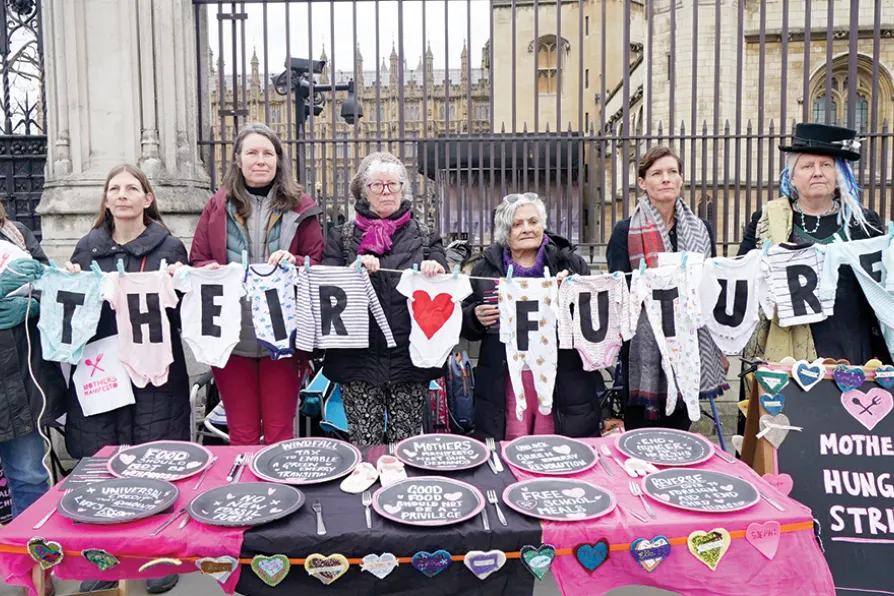A vast US war fleet deployed in the south Caribbean — ostensibly to fight drug-trafficking but widely seen as a push for violent regime change — has sparked international condemnation and bipartisan resistance in the US itself. FRANCISCO DOMINGUEZ reports
A golden opportunity to lift thousands of kids out of poverty
The Labour government must rescind the two-child benefit cap or risk irreparable damage to its legacy, writes TOMMY KANE

 LOUD AND CLEAR: A group of mothers on a five-day hunger strike, which began on Mother's Day, March 13 2024, outside the Houses of Parliament in London, demanding decisive government action on food poverty and the climate crisis
LOUD AND CLEAR: A group of mothers on a five-day hunger strike, which began on Mother's Day, March 13 2024, outside the Houses of Parliament in London, demanding decisive government action on food poverty and the climate crisis
THIS coming Wednesday Chancellor Rachel Reeves and Prime Minister Keir Starmer have the chance to lift over half a million British children out of poverty by scrapping the two-child limit.
If this Labour government really wants to deliver change, then urgently addressing child poverty must surely be a priority.
No review is needed about whether scrapping the two-child limit will help rescue child poverty, and no more consultations are required for us to understand whether the lives of children currently mired in a daily grind of survival will be improved if Labour abolishes this “morally odious” policy.
Similar stories













